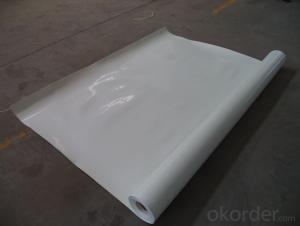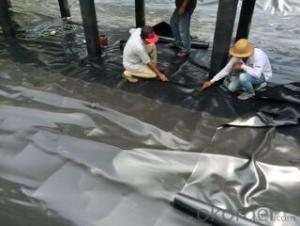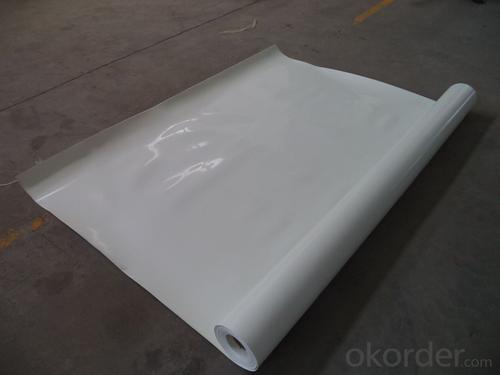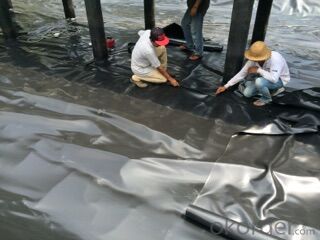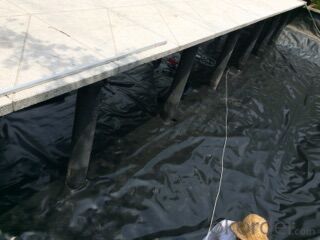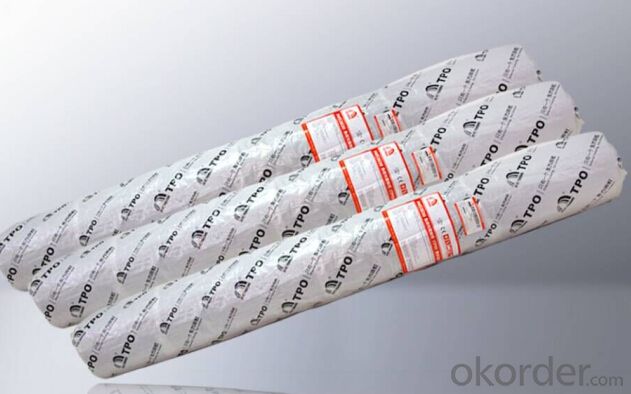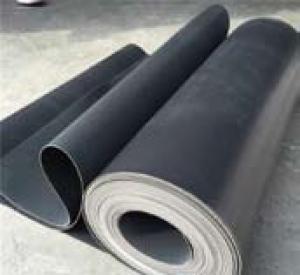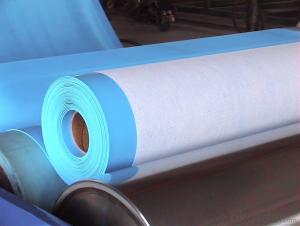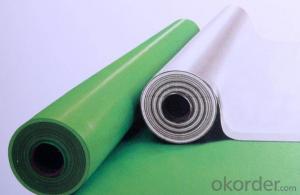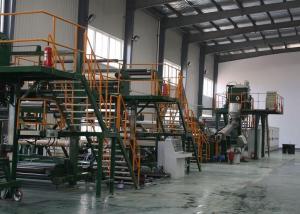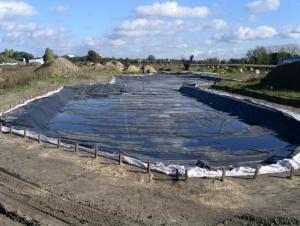TPO Waterproof Membrane Factory with High Quality
- Loading Port:
- Qingdao
- Payment Terms:
- TT OR LC
- Min Order Qty:
- 1000 m²
- Supply Capability:
- 100000 m²/month
OKorder Service Pledge
OKorder Financial Service
You Might Also Like
TPO Waterproof Membrane
1. Introduction for TPO Waterproof Membrane
TPO (Thermoplastic Polyolefin) waterproof membrane is typically based on polypropylene and EP (ethylene-
propylene) rubber. TPO mainly contains carbon atoms and hydrogen atoms and does not contain any plasticizers and chlorine elements. It is a beautiful, long-lived environment-friendly product. TPO membranes are installed mechanically-attached, fully-adhered or ballasted.
2. Features for TPO Waterproof Membrane
l Excellent tensile strength, tearing resistance and penetration resistance performance..
l Hot-air welding. The peel strength of joint is high. Fast welding speed.
l Environment friendly, 100% recycled, without chlorine.
l Durable hot welding performance and easy to repair.
l Smooth surface, no fading and pollution.
3. Specification for TPO Waterproof Membrane
Length | 20m/roll or customized |
Width | 2.05m |
Thickness | 1.2mm; 1.5mm; 2.0mm |
Type | Homogeneous, Internally reinforced with fabric, With fabric backing |
Color | White grey |
4. Applications for TPO Waterproof Membrane
l Roof construction & steel structure of both industrial and civil engineering
l Underground engineering, such as subways, tunnels, air Raid shelter, etc.
l Sewage treatment, dam, reservoir and basement, grain storehouse, etc.
5.Images of TPO Waterproof Membrane:
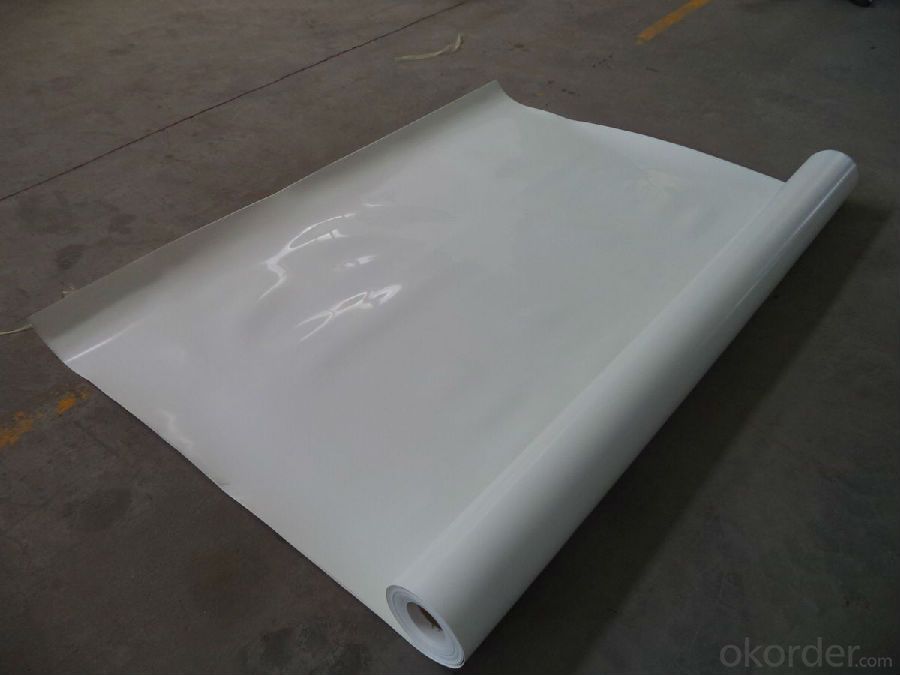
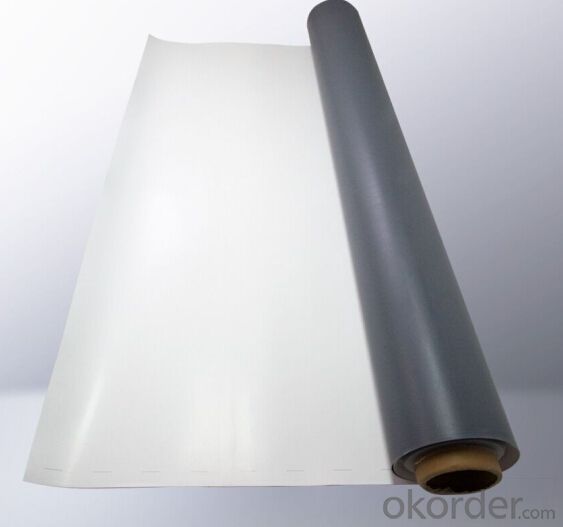
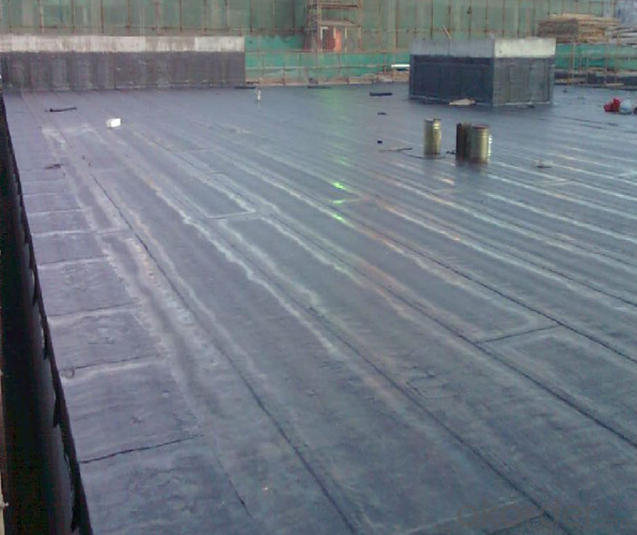
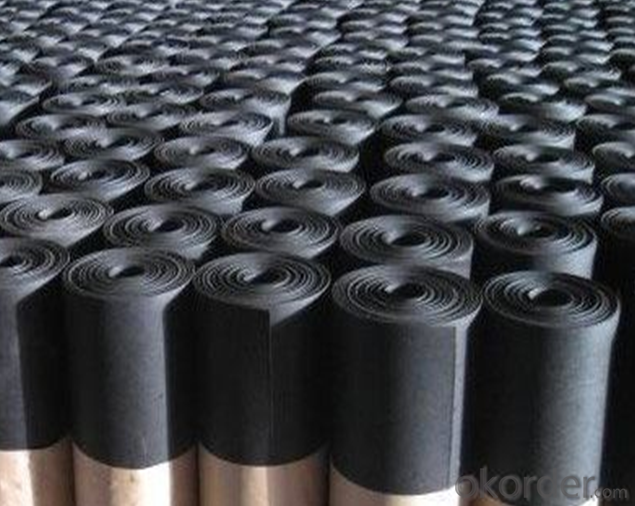
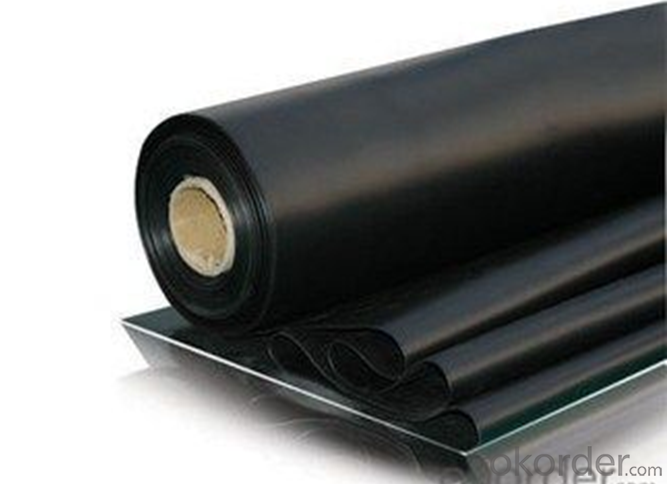
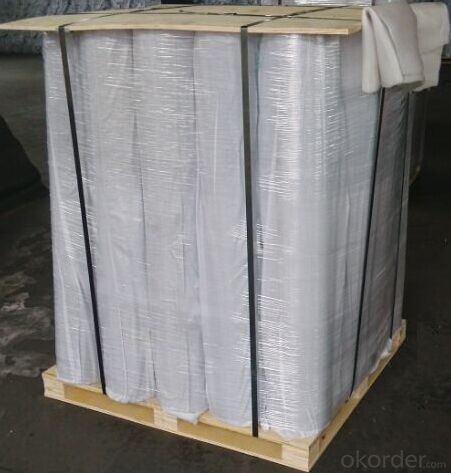
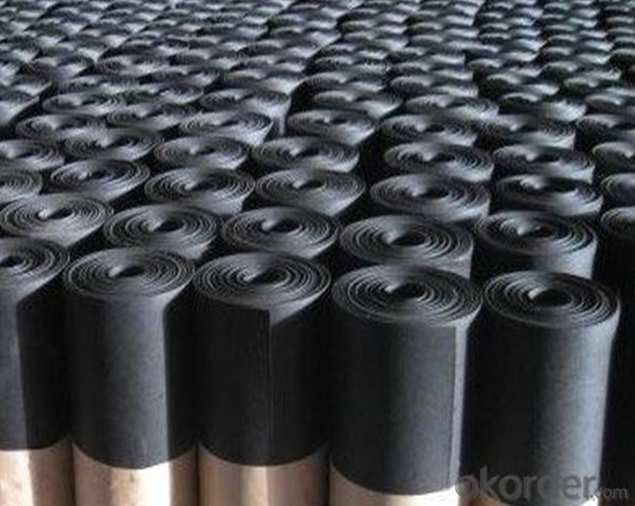
6.FAQ:
1. What are we supplying?
We are specialized in producing Colorful Asphalt Roof Shingle, SBS/APP modified bitumen waterproof membrane, Self adhesive bitumen waterproof membrane, PVC waterproofing membrane, EPDM rubber roofing membrane, Single Component Polyurethane Waterproof Coating, and Spray Polyurea Waterproof Coating
.
2. How Many years experience do we have?
We have been exported to more than 20 countries in the past 15 years.
3. How long do we usually reply your request?
We always reply our customer within 24 hours.
- Q: Can waterproofing membranes be used on utility tunnels?
- Yes, waterproofing membranes can be used on utility tunnels. These membranes are designed to provide a barrier against water and moisture, ensuring the protection of the tunnel and its contents from potential water damage.
- Q: Can a waterproofing membrane be used in conjunction with expansion joint systems?
- Yes, a waterproofing membrane can be used in conjunction with expansion joint systems. The membrane can be applied over the expansion joint system to provide an additional layer of protection against water penetration, ensuring the longevity and effectiveness of the joint system.
- Q: Can a waterproofing membrane be used for walkways or pedestrian bridges?
- Yes, a waterproofing membrane can be used for walkways or pedestrian bridges. Waterproofing membranes are designed to protect surfaces from water infiltration and can be applied to various structures, including walkways and pedestrian bridges, to prevent water damage and ensure their longevity.
- Q: Can a waterproofing membrane be used in commercial construction?
- Certainly, a waterproofing membrane is a viable option for utilization in commercial construction. In actuality, it serves as an essential element throughout the construction process. Its purpose is to establish a barrier against moisture, effectively preventing water infiltration and safeguarding the structure from potential water-related harm. This element proves particularly crucial in commercial edifices, where water poses a significant threat to the structural integrity. It can lead to severe problems, including mold proliferation, material deterioration, and even compromise the foundation's stability. Waterproofing membranes find widespread application in various areas of commercial construction, encompassing basements, roofs, foundations, and even external walls. They come in diverse forms, such as sheets, liquid coatings, or spray-applied membranes, allowing for flexibility and adaptability in different construction scenarios. All in all, incorporating a waterproofing membrane in commercial construction endeavors is a prudent investment, ensuring the long-lasting endurance and efficiency of the building.
- Q: What are the different types of waterproofing membranes?
- Construction and building projects commonly utilize various types of waterproofing membranes to prevent water penetration through walls, roofs, or other structures. These membranes can be applied to different surfaces. 1. Bituminous Membranes: Comprised of bitumen, polymers, and reinforcement materials like fiberglass or polyester, bituminous waterproofing membranes are frequently employed in roofing applications. They can be applied using hot or cold processes and offer outstanding waterproofing properties and durability. 2. PVC Membranes: Synthetic PVC membranes exhibit high resistance to water, chemicals, and UV radiation. They are often used in roofing applications, particularly for flat or low-slope roofs. PVC membranes are lightweight, flexible, and easy to install, boasting long-lasting waterproofing protection while being puncture and tear-resistant. 3. EPDM Membranes: Synthetic rubber EPDM membranes find common use in roofing applications. These membranes are highly durable, flexible, and resistant to UV radiation, ozone, and extreme temperatures. They can be installed as a single-ply membrane or in combination with other materials. 4. TPO Membranes: TPO membranes, a type of single-ply roofing membrane, are commonly employed in commercial and industrial settings. Composed of polymer blends and reinforcement materials, TPO membranes exhibit high resistance to water, chemicals, and UV radiation. They are lightweight, flexible, and easy to install. 5. Liquid Applied Membranes: Liquid applied membranes are an application type where the waterproofing system is initially liquid and cures to form a seamless and flexible membrane. These membranes can be made from various materials such as acrylic, polyurethane, or rubber-based compounds. They are often used for below-grade applications like basements or foundations, as well as roofs or other surfaces. To ensure effective and long-lasting waterproofing protection, it is crucial to consider the specific project requirements and consult with professionals to determine the most suitable type of waterproofing membrane.
- Q: Can a waterproofing membrane be used in combination with insulation materials?
- Yes, a waterproofing membrane can be used in combination with insulation materials. In fact, it is often recommended to use a waterproofing membrane in conjunction with insulation to provide enhanced protection against water damage and moisture intrusion. The waterproofing membrane acts as a barrier, preventing water from penetrating the building envelope, while the insulation materials help to regulate temperature and improve energy efficiency. By combining these two elements, you can create a more durable and efficient building envelope system. However, it is important to ensure that the chosen waterproofing membrane is compatible with the insulation materials being used, and that proper installation techniques are followed to ensure a tight seal and optimal performance.
- Q: Can a waterproofing membrane be used for balconies and terraces?
- Yes, a waterproofing membrane can be used for balconies and terraces. In fact, it is highly recommended to use a waterproofing membrane in these areas to prevent water penetration and damage. Balconies and terraces are exposed to outdoor elements such as rain, snow, and sunlight, which can cause moisture buildup and deterioration of the underlying structure. A waterproofing membrane acts as a barrier, preventing water from seeping through the surface and causing potential leaks, mold growth, or structural damage. It provides an effective solution to protect the balcony or terrace, ensuring its longevity and durability. Additionally, waterproofing membranes are available in different types and materials, allowing for flexibility in choosing the most suitable option based on the specific requirements of the balcony or terrace.
- Q: Can a waterproofing membrane be used in interior or exterior applications?
- A waterproofing membrane can be utilized in both interior and exterior scenarios. When used indoors, such as in basements or bathrooms, the membrane can be applied to walls or floors to effectively prevent water or moisture infiltration. This safeguard shields the underlying structure from potential harm caused by water intrusion. For exterior applications, the waterproofing membrane can be employed on the outer walls or foundations of a building to effectively repel water. This becomes particularly crucial in regions with heavy rainfall or high water tables. By creating a barrier against water, the membrane effectively maintains a dry and water-free interior environment for the building. In conclusion, the utilization of a waterproofing membrane in both interior and exterior contexts is absolutely necessary in order to ensure the longevity and durability of a structure by effectively safeguarding it against water-related issues.
- Q: Are waterproofing membranes suitable for balconies and terraces?
- Yes, waterproofing membranes are suitable for balconies and terraces as they provide an effective barrier against water infiltration, protecting the underlying structure from potential damage caused by moisture.
- Q: Can a waterproofing membrane be used for parking garages?
- Yes, a waterproofing membrane can be used for parking garages. Waterproofing membranes are commonly used in construction to prevent water infiltration and damage to structures. Given the potential exposure of parking garages to water from rainfall, snowmelt, or vehicle fluids, using a waterproofing membrane can help protect the structural integrity of the garage and extend its lifespan.
Send your message to us
TPO Waterproof Membrane Factory with High Quality
- Loading Port:
- Qingdao
- Payment Terms:
- TT OR LC
- Min Order Qty:
- 1000 m²
- Supply Capability:
- 100000 m²/month
OKorder Service Pledge
OKorder Financial Service
Similar products
Hot products
Hot Searches
Related keywords
